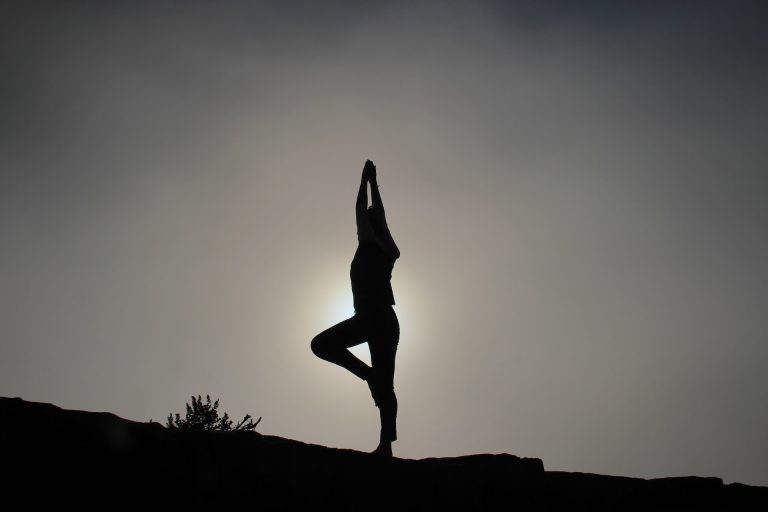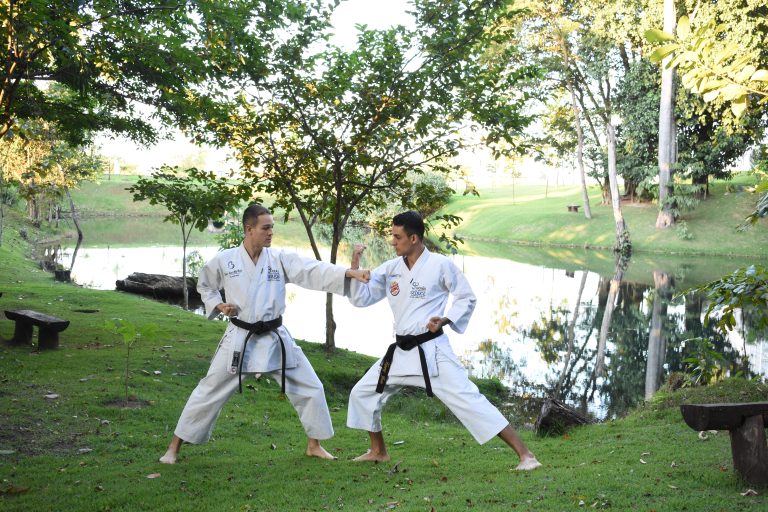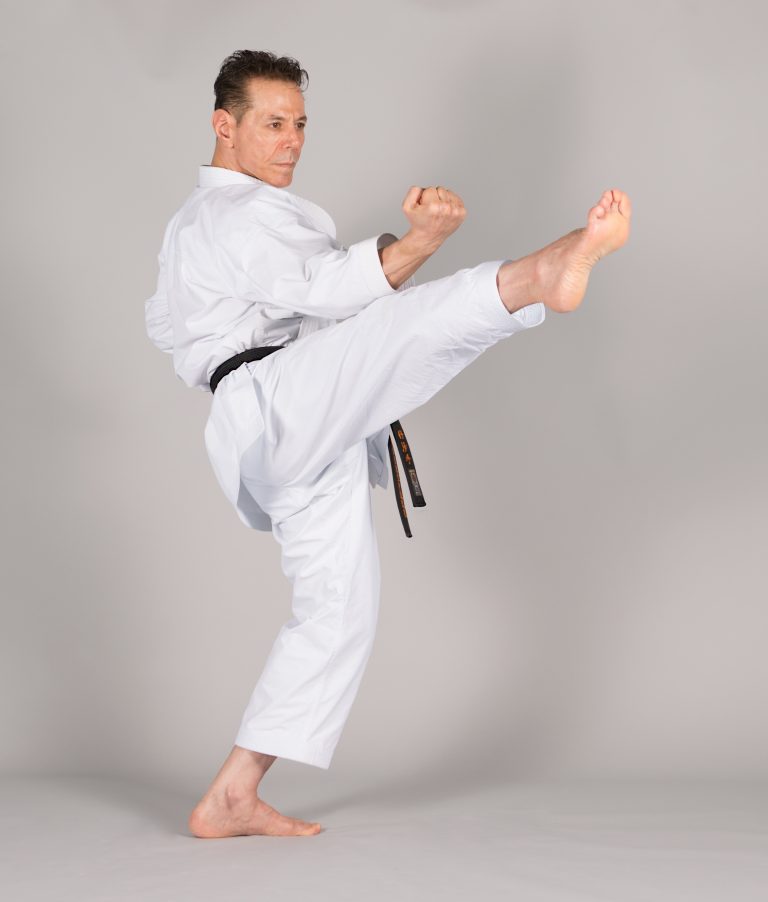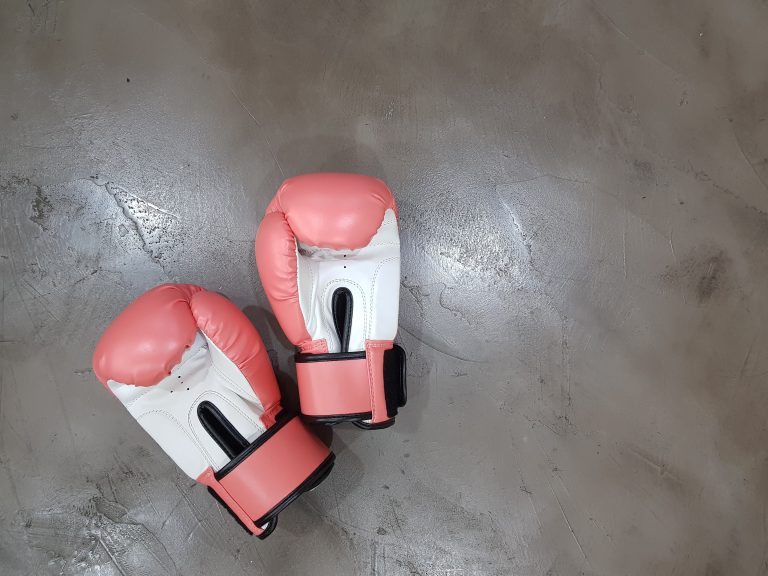What Karate Does to Your Body: Benefits, Risks, and Effects
Karate is a popular martial art that originated from Okinawa, Japan. It is an effective form of self-defense that not only strengthens your mind but also your body. Karate training includes repetitive movements of strikes, kicks, and blocks, which are designed to enhance your speed, power, and agility. In this blog post, we will explore what karate does to your body, including its benefits, risks, and effects.
Karate Benefits for Your Body
First, let’s discuss the benefits of practicing karate for your body.
1. Increases Flexibility and Balance
Karate requires a wide range of movements that can improve your flexibility and balance. The constant practice of karate techniques helps to stretch your muscles, release tension, and increase your joint mobility. Moreover, the different stances and footwork of Karate improve your balance and stability, as well as your body awareness.
2. Builds Strength and Endurance
Karate utilizes both strength and endurance training. By performing punches, kicks, and blocks on a regular basis, you will strengthen your muscles and increase your overall body strength. Additionally, the cardio exercises and sparring drills in karate also improve your cardiovascular endurance, which can help you fight fatigue and stay energized throughout the day.
3. Enhances Coordination and Reflexes
Karate movements require perfect timing, precision, and coordination. Repetitive practice of these movements improves your hand-eye coordination, and promotes quick and accurate movements. Moreover, the reflexive nature of martial arts helps you to react quickly to unexpected situations, both physically and mentally.
4. Reduces Stress and Anxiety
Karate includes controlled breathing techniques that promote relaxation and reduce stress and anxiety. With the correct breathing techniques, you can lower your heart rate, calm your nerves, and improve your focus.
Risks and Challenges of Karate Training
As with any physical activity or sport, karate also poses some risks and challenges to your body. Here are the most common ones.
1. Risk of Injury
High-impact karate movements and sparring can cause injuries such as sprains, strains, and fractures. Moreover, the constant repetition of certain movements can cause damage to your joints, especially knees, hips, and wrists. It is important to warm up properly, use protective gear, and practice proper form and techniques to minimize the risk of injury.
2. Risk of Dehydration and Overheating
Karate is a highly intensive activity that can lead to dehydration and overheating, especially in warm environments. It is important to stay hydrated and to take frequent breaks during training to prevent heat exhaustion or dehydration.
3. Mental Stress
Karate training involves a lot of mental stress, especially during competitions and sparring. This can lead to anxiety and mental exhaustion if not managed properly. It is important to practice stress management techniques, such as meditation or yoga, to reduce mental stress.
Effects of Karate Training on Your Body
Now, let’s dive into the long-term effects of practicing karate on your body.
1. Improved Cardiovascular Health
The aerobic and cardiovascular benefits of karate can lead to improved heart health, including lower resting heart rate and blood pressure.
2. Increased Bone Density
The repetitive movements and impact of karate increase bone density, which can help prevent osteoporosis and other bone-related diseases.
3. Enhanced Immune System
Physical exercise improves the immune system, making it better equipped to fight off diseases and infections. Karate also promotes mental and emotional well-being, which in turn promotes a healthy immune system.
4. Increased Confidence and Discipline
Karate training involves discipline, self-control, and respect for others. Practicing these principles can improve your self-confidence, self-esteem, and overall mental health.
Frequently Asked Questions About What Karate Does To Your Body
Karate is one of the most popular martial arts disciplines in the world, and many people wonder how it affects the body. If you’ve been considering taking up karate training or are just curious about how it can benefit the body, you may have a few questions. Here are the most frequently asked questions about what karate does to your body, answered.
1. What are the physical benefits of karate?
Karate offers several physical benefits, including improved fitness, flexibility, strength, and coordination. During karate training, you use different muscle groups, which helps to build and tone muscles, especially in the legs, core, and arms. Karate can also help to improve hand-eye coordination since it requires a lot of focus and quick reflexes.
2. Does karate help with weight loss?
Yes, karate can help with weight loss. Since karate is a full-body workout and involves cardiovascular exercise, it can help to burn calories and promote weight loss. Additionally, the high-intensity nature of karate training can help to boost metabolism, which can lead to increased calorie burn even when you’re not exercising.
3. Can karate help with stress management?
Yes, karate can be a helpful form of stress management. The practice of martial arts can help to reduce stress and anxiety levels, as it requires mental focus and discipline. Additionally, the physical activity of karate training releases endorphins, which are natural mood-boosters.
4. Does karate improve flexibility?
Yes, karate can help to improve flexibility. Karate training involves dynamic stretching, which can help to improve flexibility, mobility, and range of motion. Over time, consistent karate training can lead to increased flexibility and improved overall physical performance.
5. Is karate safe for beginners?
Yes, karate is generally safe for beginners, provided that they have proper instruction and supervision. Karate instructors are trained to teach beginners the proper technique and form to prevent injuries. Additionally, beginners should start with low-intensity training and gradually work their way up to more advanced techniques as they progress.
6. Can karate help with self-defense?
Yes, karate can be an effective form of self-defense. The techniques and skills learned in karate training can be used to defend oneself in real-world situations. Additionally, karate training can help to improve situational awareness and teach you how to respond to potentially dangerous situations.
7. Does karate require a lot of physical strength?
No, karate does not require a lot of physical strength. While having a baseline level of strength can be helpful for karate training, the techniques and skills involve leveraging an opponent’s strength against them, rather than relying solely on one’s own strength. This means that karate can be accessible to a wide range of people, regardless of their physical strength or fitness level.
8. Can karate be practiced at any age?
Yes, karate can be practiced at any age, provided that the individual is in good health and receives proper instruction and supervision. Karate can be adapted to suit different age groups and abilities. Children, adults, and seniors can all enjoy the benefits of karate training.
In conclusion, karate offers many physical and mental benefits, including improved fitness, flexibility, strength, stress management, and self-defense skills. If you’re considering taking up karate training, seek out a qualified instructor who can guide you through the techniques and help you develop your skills responsibly and safely.
How to Get Started with Karate Training
Karate is a martial art that offers many physical and mental benefits. It can help you build strength, improve balance and coordination, increase flexibility and, most importantly, boost your confidence. However, it can be intimidating to get started with karate training, especially if you don’t have any prior experience.
Here’s a step-by-step guide on how to get started with karate training:
Step 1: Find a Karate School
The first step to getting started with karate training is finding a reputable karate school or dojo. Look for a school that is affiliated with a recognized karate organization and has experienced instructors. You can search online, ask for recommendations from friends or family, or check out local listings.
Step 2: Meet with the Instructors
Once you’ve found a few karate schools, it’s a good idea to meet with the instructors to get a sense of their teaching style and assess their qualifications. Ask questions about their experience, training and how they structure their classes. This can help you determine whether their teaching style is a good fit for you.
Step 3: Choose Your Class Schedule
Most karate schools offer a variety of class schedules, so you’ll need to decide which one is best for you. Consider your availability and your personal preferences when choosing a class schedule. You may want to start with only a few classes per week and work your way up as you become more comfortable with the training.
Step 4: Get Your Gear
Before your first karate class, you’ll need to make sure you have the proper gear. Some karate schools provide gear for beginners, but others require you to purchase your own. Basic gear includes a karate uniform (gi) and a belt. As you progress in your training, you may also want to invest in protective equipment, such as hand wraps, shin guards, and a mouthguard.
Step 5: Start Your Training
Once you’ve found a karate school, met with the instructors, chosen your class schedule, and gotten your gear, you’re ready to start your training. Make sure you listen carefully to your instructor and ask questions if you’re unsure about any techniques. Take things slow in the beginning, and gradually work your way up to more advanced moves as you become more comfortable with the training.
Tips for Sticking to Your Karate Training
Karate training can be challenging, but it can also be incredibly rewarding. Here are some tips to help you stick to your training and reach your goals:
Set Realistic Goals
Set goals that are achievable and realistic. Break down your long-term goals into smaller, more manageable goals, and celebrate your progress along the way. Keep yourself motivated by reminding yourself of the benefits of karate.
Stay Consistent
It’s essential to stay consistent with your karate training. Attend classes regularly and practice outside of class whenever possible. It’s better to practice a little bit every day than to practice for hours on end once a week.
Stay Committed
Karate training can be challenging, but it’s essential to stay committed to your goals. Be willing to put in the hard work and effort required to achieve your goals. Remember, progress takes time.
Stay Positive
Finally, it’s essential to maintain a positive attitude throughout your karate training. Don’t get discouraged if you don’t see results right away. Stay focused on your goals, and keep working hard. With dedication and perseverance, you can achieve anything you set your mind to.
In conclusion, karate offers many physical and mental benefits, but it can be intimidating to get started with training. By following these steps and tips, you can get started with karate training and stick to your goals. Remember to stay committed, stay positive, and stay consistent.
Inhaltsverzeichnis






